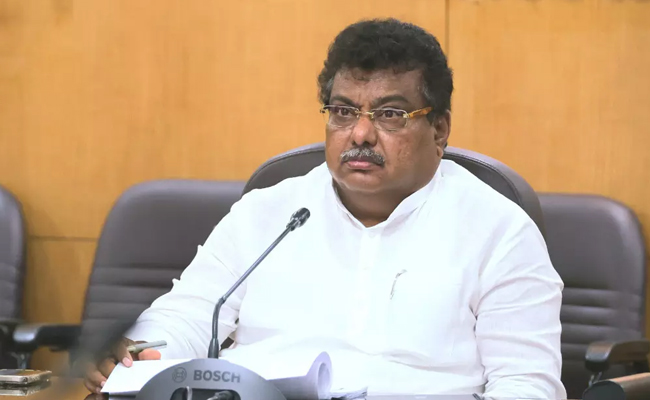New Delhi, Jan 30: India ranked 93 out of 180 countries on the corruption perceptions index for 2023 as its overall score remained largely unchanged, according to a Transparency International report.
The index, which ranks 180 countries and territories by their perceived levels of public sector corruption according to experts and business people, uses a scale of 0 to 100, where 0 is highly corrupt and 100 is very clean.
In 2023, India's overall score was 39 while in 2022, it was 40. India's rank in 2022 was 85.
"India (39) shows score fluctuations small enough that no firm conclusions can be drawn on any significant change. However, ahead of the elections, India sees further narrowing of civic space, including through the passage of a (telecommunication) bill that could be a 'grave threat' to fundamental rights," the report said.
In South Asia, both Pakistan (133) and Sri Lanka (115) grapple with their respective debt burdens and ensuing political instability, it said.
"However, the two countries have strong judicial oversight, which is helping to keep the government in check. The Supreme Court of Pakistan strengthened citizens' right to information by expanding this right under Article 19A of its Constitution to previously restricted institutions," it said.
The report said as Bangladesh (149) emerges from the least developed country (LDC) status, with economic growth supporting a continued reduction in poverty and improving living conditions, the flow of information on the public sector is hindered amidst an ongoing crackdown against the press.
Noting that China (76) has made headlines with its aggressive anti-corruption crackdown by punishing more than 3.7 million public officials for corruption over the last decade, the report said a closer study of the cases with guilty verdicts found that public officials often use corruption as a way to drive up their income.
However, the country's heavy reliance on punishment rather than institutional checks on power raises doubts over the long-term effectiveness of such anti-corruption measures, the report said.
The report said as the Asia Pacific region faces a big 2024 election year, with people coming out to vote in Bangladesh, India, Indonesia, Pakistan, Solomon Islands, South Korea and Taiwan, the 2023 Corruption Perceptions Index (CPI) reveals another year of little to no meaningful progress towards curbing corruption.
"For five years in a row, the average CPI score for the region stagnates stubbornly at 45 out of a possible 100. Very few countries show sustained turnarounds that indicate significant changes in corruption levels and several historically at the top are slowly declining," it said.
Seventy-one per cent of the countries across Asia and the Pacific have a CPI score below the regional average score of 45 and the global average of 43 out of 100. These weak scores reflect the lack of delivery by elected officials on anti-corruption agendas, together with crackdowns on organised civil society and attacks on freedoms of press, assembly and association, the report said.
"Countries with continued high scores, such as New Zealand (3) and Singapore (5), maintain their positions at the top of the index globally, followed closely by other countries with stronger corruption control mechanisms, such as Australia (14), Hong Kong (14), Japan (16), Bhutan (26), Taiwan (28) and South Korea (32)," it said.
The bottom of the index includes fragile states with authoritarian regimes, including North Korea (172) and Myanmar (162). Afghanistan (162) continues to face one of the worst humanitarian crises in history.
Let the Truth be known. If you read VB and like VB, please be a VB Supporter and Help us deliver the Truth to one and all.
Bengaluru (PTI): Karnataka Minister M B Patil on Tuesday chaired meetings with industry representatives from the aerospace and defence, machine tools, auto/EV, and green energy sectors to discuss sector growth and government support measures.
The meetings were attended by leading industrialists and their representatives, with some participating virtually.
Speaking on the occasion, the minister for Large and Medium Industries said Karnataka is at the forefront of the country’s aerospace and defence sectors.
He noted that Suzuki and Toyota plan to launch aerial taxi services in Japan by 2028, with Bengaluru-based Sasmos supplying electrical equipment for the project.
Industrialists suggested introducing similar “fly-taxi” services in Karnataka through an appropriate policy, which Patil said would be examined seriously.
The minister highlighted the need to establish testing centres and Common Facility Centres for the aerospace and defence industries and assured that these facilities would be provided.
Suggestions were also made to prepare a comprehensive roadmap for sector growth.
Karnataka has urged the Central Government to approve Defence Corridor projects in the Bengaluru North–Kolar–Chikkaballapur and Dharawada–Vijayapura–Belagavi regions.
Industrialists also suggested a corridor between Bengaluru and Mysuru, Patil said.
He said Karnataka aims to become a hub for defence electronics manufacturing, with plans to establish a 200-acre Defence Electronics Park and a 100-acre Avionics and Sensor Park.
These projects will be implemented once the Special Investment Region is operational, and land availability will not be an issue.
On the machine tools sector, Patil said the industry has recorded an annual turnover of Rs 36,500 crore and is witnessing steady growth.
Large-scale exhibitions have increased demand, and the state must strengthen its capabilities to develop control systems for heavy machinery. One testing unit is already operational in Bengaluru, with another planned for Tumakuru. Expansion of vocational training institutes in industrial areas is also underway.
In the Auto and EV sector, Vision Group members highlighted the need for a network of dry ports and more EV charging stations across the state.
Patil noted that the Tata Group is manufacturing EV buses in Dharawada for nationwide supply. Plans for mini excavator production and export facilitation were also discussed, along with the establishment of a testing facility for two-wheeler EVs.
For the Green Energy sector, the group emphasised the need for a suitable policy on battery-based energy storage and the establishment of data centres.
Patil assured that the government will seriously consider all suggestions and respond positively.





_vb_21.jpeg)